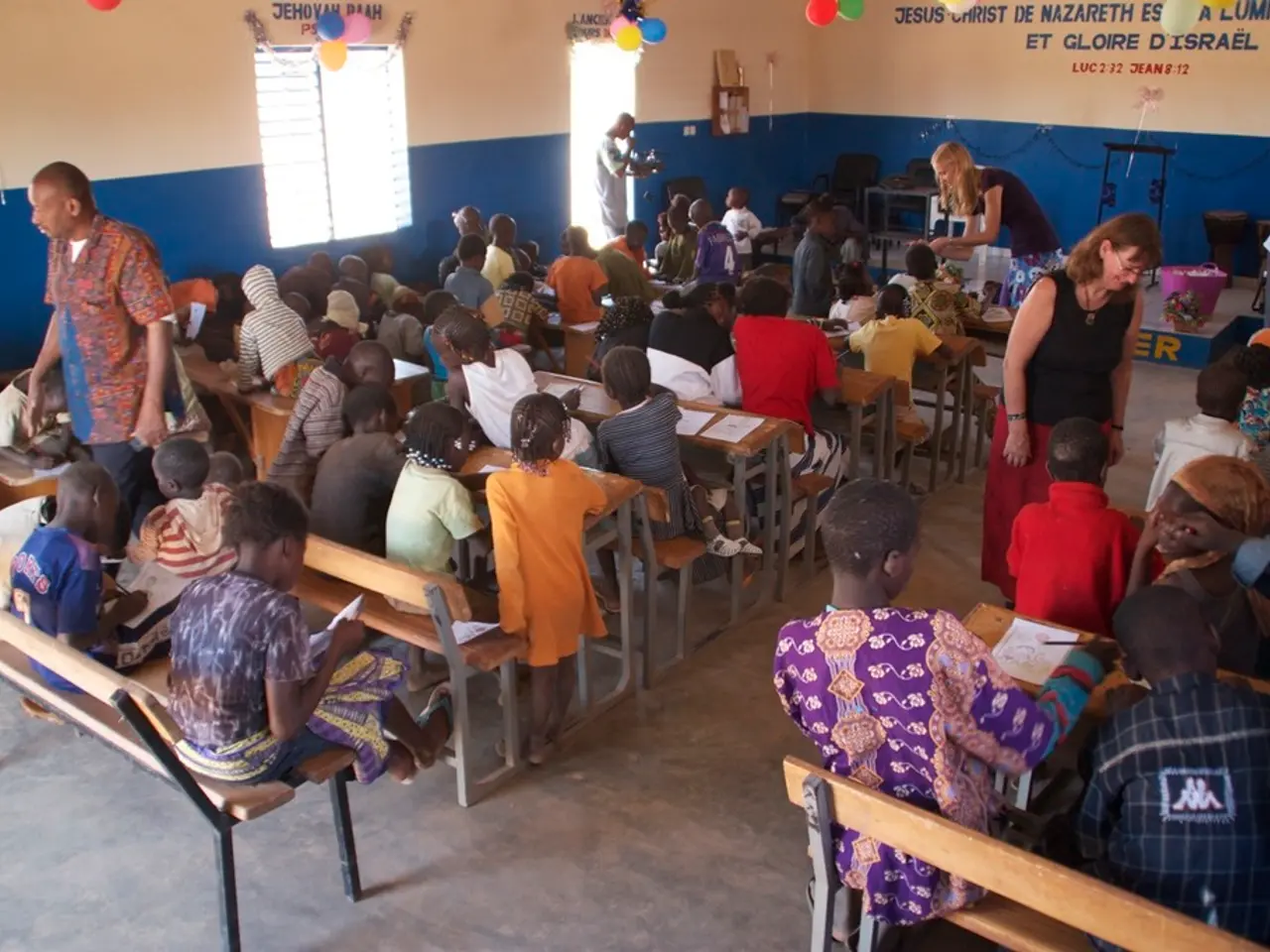Government deliberating over potential adoption of children from Middle Eastern regions
In a remarkable show of solidarity, the cities of Hanover and Düsseldorf have announced their intent to take in children from the Gaza Strip and Israel who are particularly in need of protection or traumatized. The initiative, which aims to provide medical aid to these children, has already seen the Green Party in Hanover urging the federal government for political support.
Mayor Belit Onay (Greens) of Hanover confirmed that there are currently up to 20 places available for children in need of care. The city has made the initial announcement regarding the initiative, with plans for the initiative currently being examined by the cities with their partners. Hanover is planning to take in up to 20 children, with the possibility of expansion through host or foster families.
In Düsseldorf, Mayor Stephan Keller (CDU) has expressed support for the initiative. The city has held initial talks with the Jewish community and the circle of Düsseldorf Muslims regarding their plans. The exact scope of the help in Düsseldorf is still unclear, but Mayor Clara Gerlach (Greens) and mayoral candidate Fabian Zachel (SPD) from Düsseldorf have also signed the statement regarding the initiative.
However, the Federal Government of Germany needs to address several key obstacles to facilitate the entry and support of these traumatized children. The feasibility of bringing children from Gaza depends crucially on the security situation and their ability to leave the conflict zone safely. Political and administrative support is also essential, as although cities like Hanover and Düsseldorf have expressed willingness to accept vulnerable children, the federal government has so far not actively supported these projects.
The Federal Office for Migration and Refugees has deprioritized applications from Gaza due to the ongoing conflict and a lack of sufficient information about conditions on the ground. This affects how asylum or humanitarian protection requests are processed, adding bureaucratic hurdles. Government officials have expressed reluctance to support accepting children in Germany, arguing it might be more effective to provide aid directly in the region or motivate neighboring countries to accept them.
In summary, to facilitate entry and support, the federal government must resolve security clearance and exit logistics for children, provide clear political backing to local initiatives in Hanover and Düsseldorf for reception and medical treatment, clarify refugee or humanitarian entry policies for Palestinians from Gaza, and balance these efforts against broader geopolitical and humanitarian strategies.
Other cities are reportedly interested in participating in similar programs, indicating a growing movement of compassion and support across Germany. As these initiatives progress, it is hoped that the federal government will provide the necessary support to ensure the safety and wellbeing of these vulnerable children.
[1] [Article 1 link] [2] [Article 2 link] [3] [Article 3 link] [4] [Article 4 link] [5] [Article 5 link]
- The initiative to provide medical assistance to traumatized children from Israel and Gaza has expanded to include science, as experts in mental health are needed to help these children cope with their experiences.
- In light of the ongoing war and conflicts in the region, policy-and-legislation regarding migration needs to be addressed for the safety and well-being of these children, ensuring they receive proper health-and-wellness care when they arrive.
- The growing movement of compassion and support across Germany, as demonstrated by the initiatives in Hanover and Düsseldorf, has led to increased interest in similar projects within general-news outlets.
- As the initiatives progress, it is crucial for politics and policy-and-legislation to acknowledge and support the importance of health-and-wellness, including mental health, for these children in order to promote their overall well-being.




